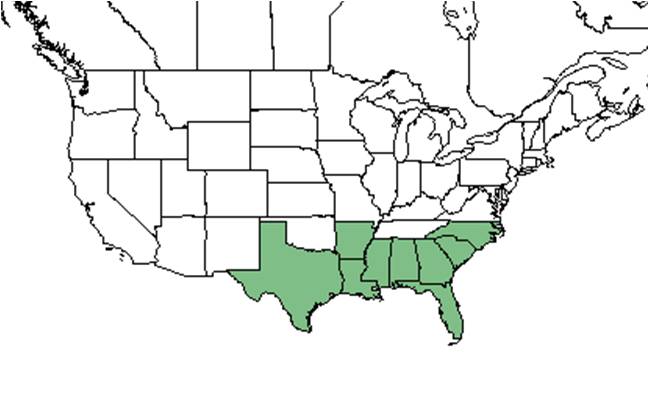Difference between revisions of "Oldenlandia corymbosa"
KatieMccoy (talk | contribs) |
KatieMccoy (talk | contribs) |
||
| Line 29: | Line 29: | ||
===Phenology=== <!--Timing off flowering, fruiting, seed dispersal, and environmental triggers. Cite PanFlora website if appropriate: http://www.gilnelson.com/PanFlora/ --> | ===Phenology=== <!--Timing off flowering, fruiting, seed dispersal, and environmental triggers. Cite PanFlora website if appropriate: http://www.gilnelson.com/PanFlora/ --> | ||
| + | Flowers and fruits August through October (FSU Herbarium). | ||
| + | |||
===Seed dispersal=== | ===Seed dispersal=== | ||
===Seed bank and germination=== | ===Seed bank and germination=== | ||
Revision as of 11:22, 10 November 2015
| Oldenlandia corymbosa | |
|---|---|

| |
| Scientific classification | |
| Kingdom: | Plantae |
| Division: | Magnoliophyta - Flowering plants |
| Class: | Magnoliopsida – Dicotyledons |
| Order: | Rubiales |
| Family: | Rubiaceae |
| Genus: | Oldenlandia |
| Species: | O. corymbosa |
| Binomial name | |
| Oldenlandia corymbosa L. | |

| |
| Natural range of Oldenlandia corymbosa from USDA NRCS Plants Database. | |
Common name: flat-top mille graines
Contents
Taxonomic notes
Description
Distribution
Ecology
Habitat
Oldenlandia corymbosa has been found growing on exposed sandbars in rivers, sidewalk gravel, cracks of concrete, and loamy sand of an open planted peanut field (FSU Herbarium). Soil types include loamy sand, sandy loam, sandy alluvium, and clayey sand (FSU Herbarium).
Phenology
Flowers and fruits August through October (FSU Herbarium).
Seed dispersal
Seed bank and germination
Fire ecology
Pollination
The following Hymenoptera families and species were observed visiting flowers of Oldenlandia corymbosa at Archbold Biological Station (Deyrup 2015):
Halictidae: Lasioglossum lepidii, L. placidensis, L. puteulanum
Sphecidae: Cerceris blakei, C. tolteca
Use by animals
Diseases and parasites
Conservation and Management
Cultivation and restoration
Photo Gallery
References and notes
Deyrup, M.A. and N.D. 2015. Database of observations of Hymenoptera visitations to flowers of plants on Archbold Biological Station, Florida, USA.